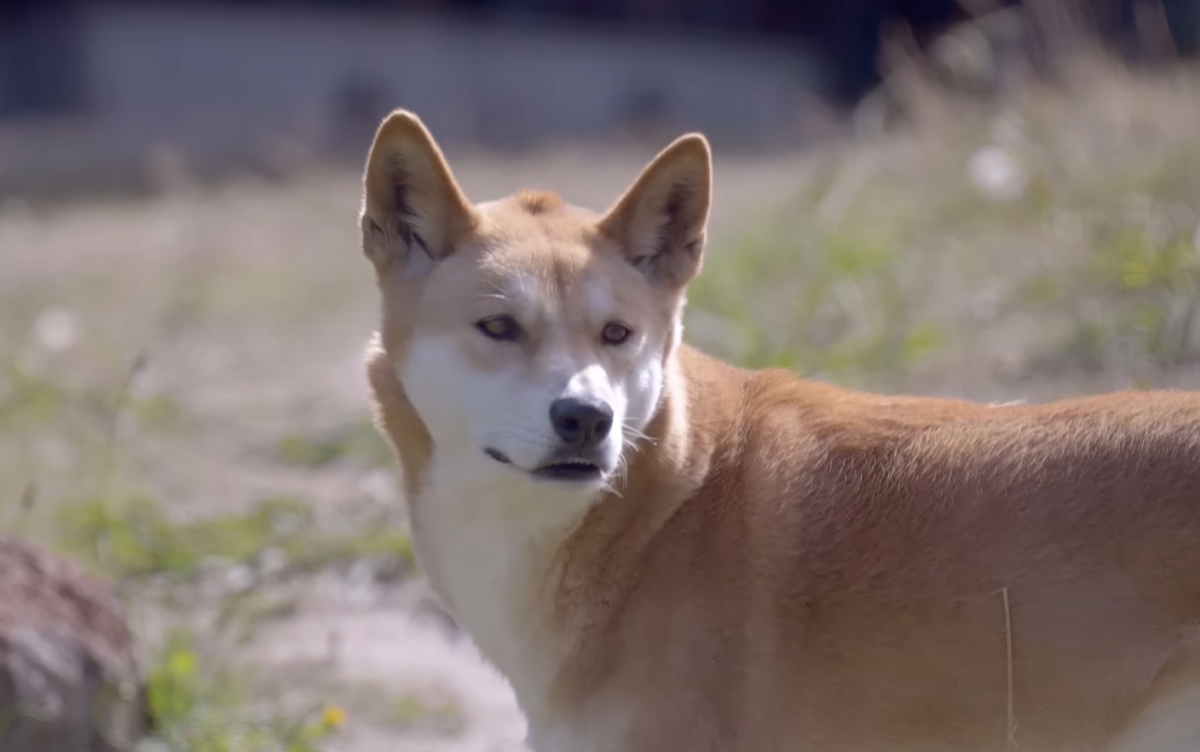
Sometimes, the smallest wording change can cause the biggest stir. A proposal buried deep in a government discussion paper has ignited strong reactions from conservationists, Indigenous leaders and animal welfare groups alike.
The suggested update might sound technical—but it could pave the way for Australia’s wild dingoes to be kept as pets for the first time.
The Queensland government is considering reclassifying dingoes as domestic dogs, changing their scientific name from Canis lupus dingo to Canis familiaris, the same species name used for household pets.
The move would mean a dramatic shift in how the animals are regulated—potentially allowing people to own them legally under pet laws.
Currently, dingoes are treated as a separate species that cannot be sold, traded, fed, moved or released into the wild.
For advocates like Defend the Wild’s Alix Livingstone, the outright ban on keeping dingoes isn’t justified—but she says any change must recognise their uniqueness.
‘Ownership needs to happen under a licensing system that recognises that dingoes are a separate species from domestic dogs,’ she said.
‘They have unique needs and require specialised care, and ultimately, not everybody should have a dingo.’
Indigenous backlash over ‘slap in the face’ plan
The proposal has deeply upset some First Nations groups, who see the dingo as an animal of immense cultural and spiritual significance.
Jirrbal Rainforest Aboriginal woman and Dingo Culture founder Sonya Takau called the plan a ‘slap in the face for Aboriginal people’, saying consultation had been minimal.
‘Dingoes are culturally important. They’re a unique species unto their own, which we’ve always known,’ she said.
Takau added that many elders were unaware of the review, despite the Department of Primary Industries (DPI) stating Indigenous local governments had been notified.
‘It’s lying. They need to be truthful with their dealings with this animal,’ she said.
‘The truth is Australia’s dingo is not a domestic dog—it’s a unique wild canid.’
Where Aussies can—and can’t—own a dingo
Across Australia, the rules on keeping dingoes vary.
In New South Wales and Western Australia, there are no restrictions, while in Victoria and the Northern Territory, dingoes can be kept with a licence. But Queensland and South Australia have long taken a tougher stance, banning private ownership altogether.
In 2024, that strict approach made headlines when Queensland police seized and euthanised a man’s dog simply because it resembled a dingo.
Limited DNA testing in Queensland has found very little hybridisation between domestic dogs and dingoes—suggesting most wild populations remain genetically pure or close to it.
Source: YouTube / ABC News (Australia)
Scientists say proposal ‘lacks nuance’
Whether dingoes and domestic dogs are the same species remains hotly debated.
The DPI said its plan merely reflects ‘the latest national taxonomic advice’ from the federal government’s Australian Faunal Directory. But researchers warn that oversimplifying the science could create confusion.
‘Using the name Canis familiaris for dingoes is a problem because it lacks that nuance of the different evolutionary pathways these two canid lineages have taken,’ said University of NSW molecular biologist Dr Kylie Cairns.
‘They’ve been here for thousands of years, they’re ecologically important, they’re genetically distinct, and culturally important to First Nations people.’
The International Union for Conservation of Nature (IUCN) is also reviewing whether the dingo should remain classified as a separate species. The outcome could influence both Queensland’s decision and international conservation policy.
How management could change
Under current rules, dingoes outside protected areas are considered a biosecurity risk and a potential threat to livestock.
The government’s discussion paper argues there’s ‘no difference in biosecurity risks associated with different dog species’.
If approved, the classification change would take effect in April 2026, meaning dingoes would fall under the Animal Management Act 2008 and Animal Care Protection Act 2001.
A spokesperson for the Department of Primary Industries (DPI) said, ‘Dingoes will continue to be protected in national parks, and landholders will still be able to take action to protect their livestock from wild dog or dingo attacks under the general biosecurity obligation.’
Dr Cairns warned that the change could add ‘a layer of confusion’, especially where dingoes play vital ecological roles.
‘If we knew there were domestic dogs in the wild, then you would want to remove them,’ she said, noting that future updates from global authorities could complicate the laws even further.
Consultation on the proposed changes closed on 27 October 2025, though some stakeholders have reportedly been granted extensions to provide further feedback.
Whether seen as a threat, a totem, or a treasured part of Australia’s heritage, the dingo continues to stir strong emotions.
The latest proposal could reshape not only how the species is managed but also how it’s understood.
As the debate continues, one question remains—can the wild and the domestic ever truly coexist?
Read next: ‘It was worth it’: The truth behind Australia’s rising dingo attacks
Do you think dingoes should be recognised as domestic dogs, or remain protected as a unique native species? Share your thoughts below—this debate is shaping the future of one of Australia’s most iconic animals.







